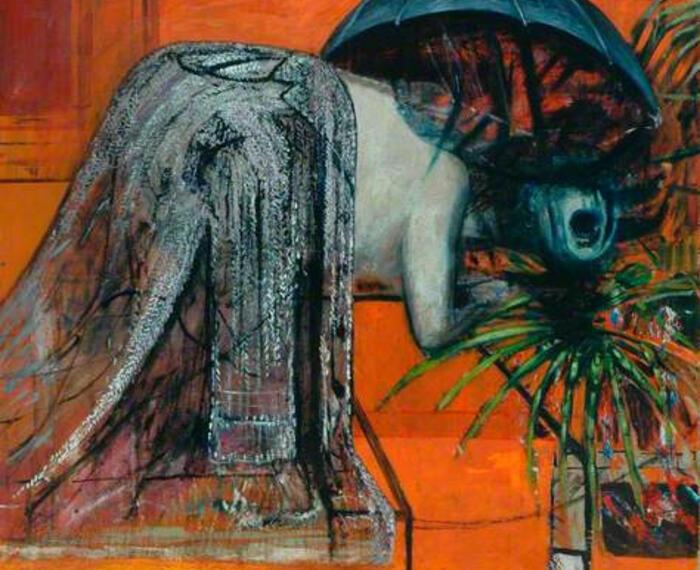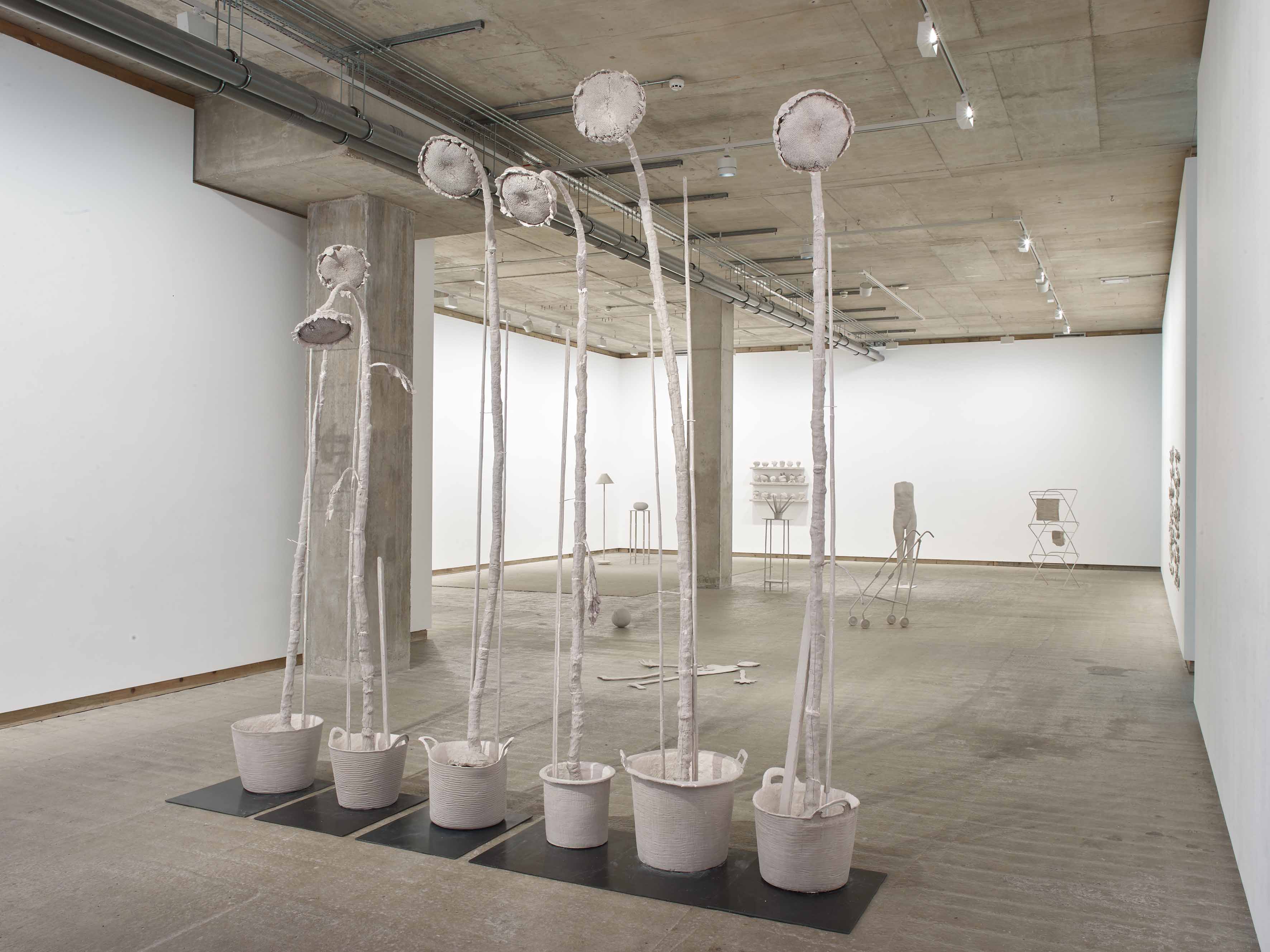


Installation View, Daphne Wright: A quiet mutiny – persists at Frith Street Gallery, London, 2020. Courtesy the artist and Frith Street Gallery, London. Photo: Steve White
Daphne Wright is known for her poignant, multi-narrative sculptural installations that are often made of unstable or fragile materials including plaster, tinfoil, or sound. Her visual vocabulary is inspired by the domestic environment, as well as by suburban life, politics, literature, film, theatre and art history. She often developed by observes her own children, as well as older people, negotiating difficult issues that are often side-lined by our society – such as care, parenthood, family and aging.
Objects from everyday life, all rendered by the artist in unfired grey clay, are displayed on two floors. They include a pushchair, a Zimmer frame, a group of colossal sculpted sunflowers, a floor lamp, a clothes rack, an Aloe vera plant, a fridge door with a lone plastic milk bottle, children’s toys, a football, plates and a sculpture of a female body. A flat clay-figure lies on the floor. This is based on one of Wright’s son’s childhood drawings, referencing a teen stabbing. The materiality of the raw clay creates a dichotomy of familiarity and fragility, stripping the objects we are all familiar with back to their essence and eschewing colour.
Downstairs in the gallery we are invited to watch Is everyone ok? (2019), a video of an ageing man seemingly carrying the scars of a career spent in middle management while trying to deal with his wife’s poor health. A second video, Song of Songs (2019) explores the uneasy relationship between an adult carer and a vulnerable family member, featuring an elderly lady and a slightly younger man. A series of pale blue watercolour drawings titled Little Sad Faces (2019) accompany these, with subtitles such as Alone, Breaktime, Lost, Old, Sulk. They are based on the ‘sad face’ emoji and probe the highly conventionalised expressions of emotion within social media and teenage culture.
At the core of her practice Wright is concerned with boundaries. She explores the transitory areas of life, from childhood to adulthood, as well as the borderline between life and death. By focusing on the poignant in the mundane, her disconcertingly beautiful installation at Frith Street Gallery creates a space where voices that span of generations can co-exist and interact. It seems that the transient nature of life has been frozen into a grey sculptural vanitas still life, inviting the viewer to contemplate the lifecycle of human beings – inevitably evoking feelings of melancholia and ambiguity. The fact that all objects in the installation are held in the same monochrome colour spectrum creates a feeling of visual and emotional disorientation, with no hierarchy between them.
Even though Daphne Wright started to work on these tactile everyday objects several years ago, there is no doubting the relevance of her work to our current moment as the familiar world we have known has been turned upside down by an unprecedented pandemic. The boundaries of public and private space, as well as between the real and virtual world, are collapsing. The institutionalised compartmentalisation of family and professional life is no longer viable when we are all forced to work from home whilst simultaneously home-schooling our children, and when the categories of who is classified as vulnerable are shifting, often arbitrarily. The seemingly protective walls of our domestic world are becoming porous as the ‘outside world’ can now sneak in through new digital technologies such as Zoom. Works like Zimmer or Fridge Door make me think of all the elderly and vulnerable people who had to self-isolate for many long months, and the cacophony of voices from different generations can stand for the tensions arising in families during lockdown.
A quiet mutiny – persists is a brave exhibition: the domestic sphere is still a contested site for artist-women to explore. For Wright however, the domestic is intrinsically linked with the social and the political. She has stated: ‘I don’t see a division between the domestic and the political because the domestic is where we equip young people to go out to the crossroads of political and social interactions. And more and more, the political and social are coming into our houses because of technology.’
Christine Takengny
Curator
Frith Street Gallery, 17-18 Golden Square, London W1F 9JJ. Open Tuesday-Saturday 11.00-17.00. Exhibition continues until 14 November 2020. www.frithstreetgallery.com